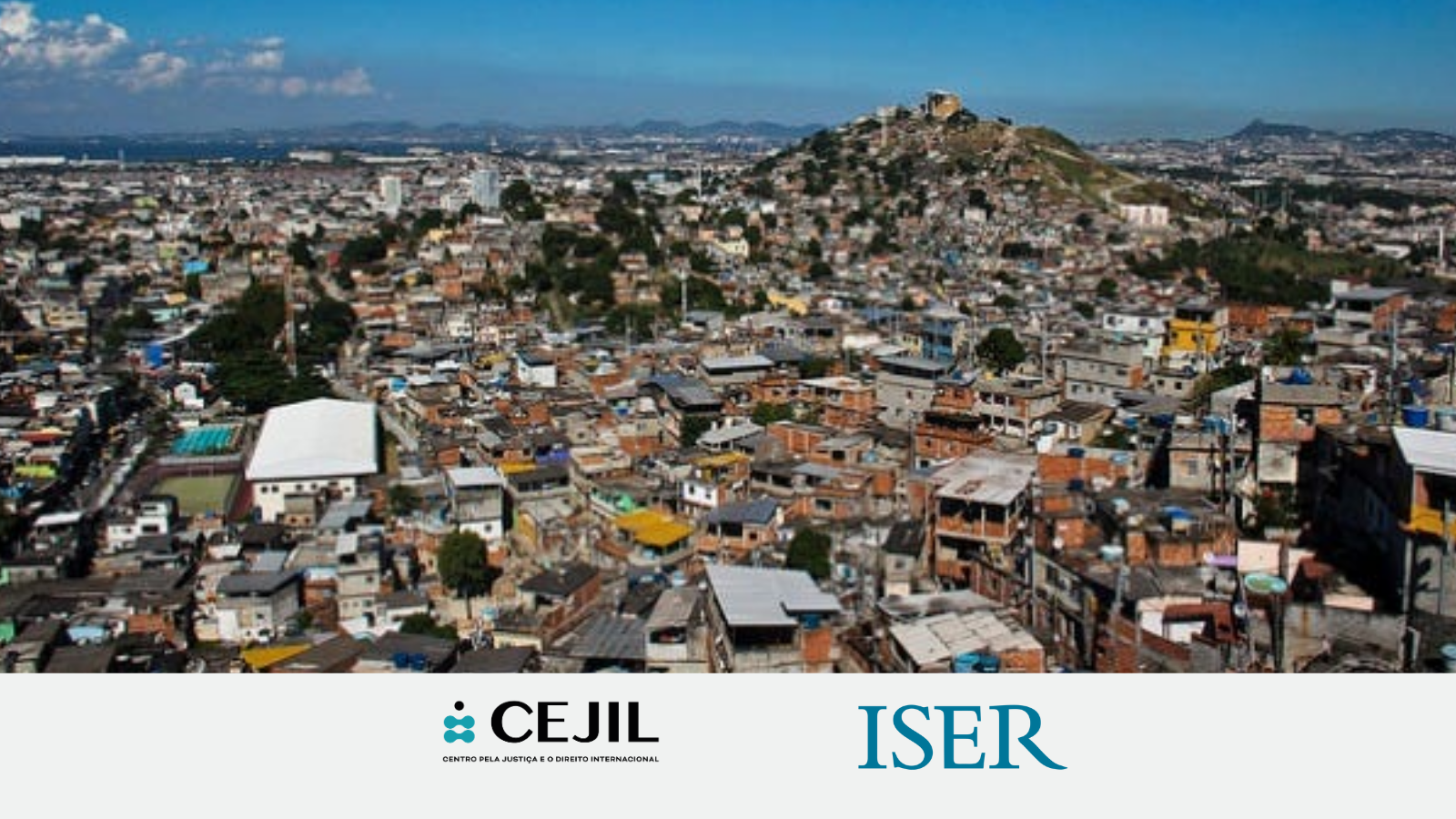






Río de Janeiro, Brasil. October 18th 2004. – On October 18, 1994, public security agents from the state of Rio de Janeiro executed 13 (thirteen) people, including teenagers, during a police operation in the Nova Brasília favela, Complexo do Alemão. During the same raid, three young women, two of them teenagers, were victims of sexual torture by police officers. On May 8, 1995, in the same place during another police operation, state agents executed another 13 (thirteen) people.
On the occasion of the 30th anniversary of the first massacre, the Center for Justice and International Law (CEJIL) and the Instituto de Estudos da Religião (ISER), organizations that represent the victims before the Inter-American Court of Human Rights (IA Court HR), come to the public to pay tribute to the courageous struggle of the victims and their families for justice and to denounce, once again, the state’s systematic failure to comply with the international sentence that condemned Brazil and ordered a series of non-repetition measures, aimed at transforming the current model of public security, based on warlike violence against the black and peripheral population and their territories.
The condemnatory sentence, handed down by the IA Court on February 16, 2017, declares the international responsibility of the Brazilian state for the violation of the right to judicial guarantees of independence and impartiality of the investigation, due diligence and reasonable time, the right to judicial protection, and the right to personal integrity of the relatives of the murdered people and the victims of state sexual torture.
The IA Court recognized that the two massacres were part of the structural context of police violence in Rio de Janeiro, highlighting that police lethality predominantly affects young, black, poor and unarmed people. This context is driven by the accumulation of various state bodies, which produce a violent and racist public security policy.
The case is at the stage of supervision of compliance with the sentence and the victims, their families and representative organizations have reaffirmed to the IA Court, in reports and hearings, that the state has not complied in a minimally satisfactory manner with the resolutive points of the sentence.
In addition to measures of reparation for the victims and their families, which have still not been fully complied with by the state, the judgment ordered the adoption of public policies to guarantee the non-repetition of state violence, with an emphasis on reducing police lethality, the adoption of regulatory mechanisms that guarantee serious, effective and independent investigations into cases of police violence, with an emphasis on the autonomy of technical expertise bodies, and measures that enable the effective participation of victims and their families in all stages of the investigation and process.
According to data from the state of Rio de Janeiro itself, from 2017, the year the international ruling was published, until 2023, 9,274 people were killed by police intervention, in a panorama of a public security policy sustained by alarming rates of police lethality, incompatible with any pretension of consolidating a democratic rule of law.
The issue of reducing police lethality links the Favela Nova Brasília case with the Action for Failure to Comply with Fundamental Precepts – 635, the ADPF of the Favelas, which is in the final stages of being processed by the Federal Supreme Court. The mobilization of these two judicial instruments by social movements and organized civil society has, at times, put the brakes on the escalation of police lethality in the state.
The general picture, however, is one of non-compliance with the measures of the IA Court and the Brazilian Supreme Federal Court, since the state of Rio de Janeiro has still not presented an effective Plan to Reduce Police Lethality, built with popular participation, which recognizes the structural dimension of racism in the current public security policy and establishes a concrete target of a 70% annual reduction in deaths caused by the actions of the state.
Responsibility for lethal and violent public security policy is shared by various state institutions, and the role of external control exercised by the Public Prosecutor’s Office is fundamental. However, despite some initiatives, there are still no regulations or practices that guarantee its actions to preserve autonomy and independence in investigations into crimes committed by police officers, or the participation of victims and their families.
In this milestone of 30 years of demands for justice, we reaffirm that the sentence in the Favela Nova Brasília case is an instrument of collective struggle, which adds to the political repertoire built up by the movements of relatives of victims of state violence, various social movements and civil society organizations, against state violence and for structural changes in the current public security model.
Help us continue this critical and urgent work with a donation!
DONATE NOW